![]()
Wed, Sept 21, 2011 | UN TV
President Sleiman Addresses the General Debate of the 66th Session of the General Assembly
Address by His Excellency Michel Sleiman, President of the Lebanese Republic at the General debate of the 66th Session of the General Assembly of the United Nations (New York, 21-24 and 26-30 September 2011).
Lebanon, General Debate, 66th Session
ADDRESS
BY
H.E. GENERAL MICHEL SLEIMAN
PRESIDENT OF THE REPUBLIC OF LEBANON
AT THE
SIXTY-SIXTH SESSION
OF THE GENERAL ASSEMBLY
NEW YORK
WEDNESDAY, SEPTEMBER 21, 2011
Mr. President,
First, I would like to congratulate you for your election as President of the 66th session of the General Assembly of the United Nations, especially since you represent a brother country that has constantly shown solidarity with Lebanon and has played a key-role in advancing agreement in the Doha Accord and in Lebanon’s re-construction; hoping that our deliberations would contribute to shedding the light on rightful causes and buttress the logic of justice.
And while I commend your predecessor, M. Joseph Deiss, former President of the Swiss Confederation for his success in fulfilling his role, I would also like to express my appreciation for His Excellency the Secretary-General of the United Nations Mr. Ban Ki-moon, at the threshold of his new mandate, for all the efforts he has deployed to achieve the objectives and purposes of the United Nations.
This year’s General Assembly is held in a context dominated by Arab major developments and the Palestinian rightful effort for the State of Palestine to be recognized and obtain full membership to the United Nations, in addition to other issues such as the persistent tensions on the Korean peninsula, the positive developments on the African continent, sustained efforts to control the repercussions of the global financial crisis, natural disasters that tlrreaten different parts of the world, and the persistence of the phenomenon of terrorism, while we commemorate the Tenth Anniversary of the September II attacks with the strongest words of condemnation …
Mr. President,
I stand before you as the representative of a country that has since its inception carried the message of freedom, concord, and moderation, and it strives to consecrate and consolidate this message, in spite of the challenges and threats that have targeted, both in the East and the West, models of coexistence and cultural diversity.
In accordance with its constitution, Lebanon is “a parliamentary democratic republic based on respect for civil liberties, especially the freedom of opinion and belief. Moreover, the people are the source of authority and sovereignty; they shall exercise these powers through the constitutional institutions.”
Indeed, Lebanon has committed itself to these principles, to the devolution of power and to the participation of all communities in the management of public affairs, on the basis of equal sharing and concord, despite the wars and aggressions it suffered from over decades.
Moreover, Lebanon has always been committed to respecting resolutions of the international legitimacy, including those of the Special International Tribunal for Lebanon, and that in accordance with what the Ministerial Statements of the successive Lebanese Cabinets have asserted.
Mr. President,
Over the past months, our Arab region has witnessed events and mass popular movements calling for freedom, democracy and the establishment of the rule of law, away from authoritarianism, favoritism and corruption.
Lebanon and its scholars, media, and activists that have accompanied and supported every renaissance project in the Levant and contributed to refining it and upholding its banner, cannot but hail any peaceful approach or means to achieve reform, to consecrate the principles of democracy, justice and modernity, and to preserve human dignity and fundamental freedoms.
Only through these principles and systems, can security and peace be achieved for all the components of our societies and a convenient enviromnent for a healthy human development be ensured.
Nevertheless, we are to follow up these changes in the Arab world so that they would serve its common good, foster its progress and dignity and prevent that developments veer towards extremism or chaos or fragmentation and division on religious or sectarian bases.
In parallel, it must be brought to the attention of the international community, which is following up these developments, that the wave of popular protest that affected some Arab countries cannot perceived as simply stemming from demands pertaining to their living conditions.
Therefore, allocating funds to support the economic and social development in Arab countries that have now entered a transitional phase, and that with the aim of promoting democracy, moderation and openness would not be sufficient. Indeed, means that would dispel feelings of injustice and oppression rankling in the hearts of the Arab peoples, for the latter have been marginalized for decades and thus stalled in the face ofthe Israeli challenge and practices on one hand and that of modernity and globalization on the other should be explored.
Such approaches primarily require engaging seriously and urgently within the framework of an integrated process to impose a just and comprehensive solution to all aspects of the conflict in the Middle East, based on the resolutions of international legitimacy, Madrid’s Terms of Reference and the Arab Peace Initiative in all its provisions. This would thus lay the foundations for a project of a broader dialogue and understanding between the East and the West and among civilizations, cultures and religions. It is an overdue historical understanding, following decades marked by feelings of injustice and hostility, decades of destructive wars and missed opportunities.
In this context, it is important to underscore the rightful Palestinian efforts aiming at earning the recognition of the State of Palestine and its full membership to the United Nations, in line with the right to self-determination. Lebanon will support these efforts, in order for the latter to succeed, with the coordination and cooperation of brotherly and friend countries.
However, the recognition of the Palestinian State and its accession to the United Nations — albeit its importance — neither restores full rights nor could be considered a final solution to the Palestinian issue, as stipulated by the concept of justice and the international legitimacy resolutions.
Consequently, and until reaching a final and just political solution to the question of Palestine, which guarantees the Palestinians’ Refugees Right of Return, the UNRWA remains responsible for the Relief of Palestinian refugees and for ensuring their welfare, in cooperation with the host countries, in line with the General Assembly resolution based on which the agency was established in 1949, and that away from any form of permanent settlement of these refugees, which is equally rejected by Lebanon and our Palestinian brothers. This requires supporting the UNRWA’s budget steadily and not seeking to merge it with other UN bodies or to weaken its capacity.
In another context, Lebanon, which has recognized the Libyan National Transitional Council and participated in the Paris sununit on Libya’s future, expects from Libyan officials, with whom it is communicating for this purpose, to uncover the fate of Imam Musa al-Sadr and his two companions who went missing in Libya during an official visit in the year 1978.
Mr. President,
A few days ago, Lebanon hosted the Second Meeting of States Parties to the Convention on cluster bombs that concluded with «the Beirut Declaration», which constituted a defining moment in the course of implementing this Convention. And although addressing this issue stems from humanitarian considerations, this meeting has highlighted the terrible fallout of these weapons which have been heavily used by Israel during the aggression of July 2006. These weapons still threaten civilians on their farmlands and the innocent children in the open fields of their games in South Lebanon, which warrant condemning Israel and requesting that it appropriately compensate for the harm and extensive damage it has caused Lebanon through these weapons as well as the overall damage of its repeated aggressions against Lebanon, including those caused by the oil slick resulting from the Israeli bombardment of the Jiyeh power plant in the summer of 2006.
On the fifth anniversary of the adoption of UN Security Council Resolution 1701, Lebanon reiterates its commitment to persevere in implementing this resolution and calls once again the international community to pressure Israel and compel it to implement all its provisions. In other words, Israel is to halt its daily violations of the Lebanese sovereignty and to immediately withdraw from Lebanese territories that it still occupies in the Northern part of Al Ghajar village, the Shebaa farms, and the hills of Kfarshuba. Furthermore, it needs to desist its persistent threats against Lebanon and its infrastructure and its endeavors to destabilize the country through its spying networks and its recruitment ofagents, while we retain our right to liberate or retrieve all our occupied territories through all legitimate and available means.
On the other hand, we reaffirm that we are strongly attached to our full sovereign and economic rights over our territorial waters and exclusive economic zone and our freedom of exploitation of our natural resources, be they on land or deep in the sea, away from any designs or threats. As a matter of fact, we have addressed to the Secretary General of the United Nations a series of correspondence which marked and underscored the limits, extents of these waters’ boundaries and the legitimacy of these rights, namely the geographic coordinates respectively pertaining to the southemmost and south-west border of the exclusive economic zone of Lebanon, objecting in particular the Israeli violations and aggressions that affect these rights. Furthermore, as we warned against any initiative to exploit the resources of the disputed maritime zones, we asked His Excellency the Secretary-General to take all measures he deems appropriate to avoid any conflict.
I would like to seize this opportunity to commend the crucial role of the UNIFIL forces in South Lebanon, within the ongoing coordination and full cooperation between these forces and the Lebanese Army. I would also like to commend the UNIFIL dedication, commandment and staff, in carrying out the mission they have been entrusted with and the immense sacrifices they have been offering for the service of peace.
While we thank the countries which contributed military personnel for their continued commitment despite the challenges, we cannot but strongly condemn the terrorist attacks the international forces, particularly the French and Italian battalions, were subject to in the past months, and we are working earnestly to uncover the perpetrators, bring them to justice, and prevent the recurrence of such incidents.
Mr. President,
The United Nations has fulfilled an ever-increasing role, since the end of the Cold War, in maintaining international peace and security and in intervening to resolve disputes in many troubled regions of the world.
However, it was unable to prove its effectiveness in the Middle East, where great dangers still threaten international peace and security, as a result of Israel’s ongoing defiance of the international legitimacy resolutions, its unacceptable rejections of the requirements ofpeace, and its persistence in the abusive practices in Gaza and the occupied territories, the illegal construction of settlements, and violation of human rights. This requires that the negotiations on Security Council reform be completed, for the Council to be more aligned with the new geopolitical situation and be capable to ensure the implementation of binding Security Council resolutions, especially those related to the Arab-Israeli conflict.
In conclusion, and as we celebrate the centenary of International Women’s Day this year, we are to take more advantage of the potentials and talents of half of the humanity, and not just seek to consecrate gender equality in principle. Indeed, women could greatly contribute to the upbringing and education, to giving the upper hand to the logic of peace, to reducing poverty, hunger, disease and environmental degradation, and to promoting sustainable development opportunities.
The General Assembly deliberations and heavy agenda with its political, economic and social issues constitute an occasion for all of us to renew the vow we took since 1945, to address the challenges and crises facing the international community, by resorting to the institutions of international legitimacy and to agreed collective solutions, in conformity with the basic principles ofthe Charter of the United Nations, its resolutions and the provisions of international law, provided that they are based on the spirit ofjustice and stay away from double standards.
And history has taught us that this choice is the one and only reasonable solution.
THANK YOU



 RSS
RSS

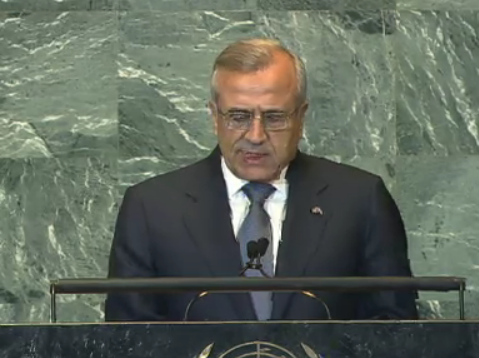
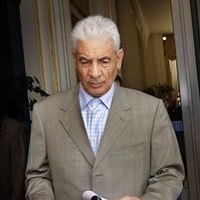
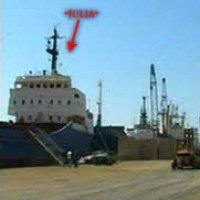
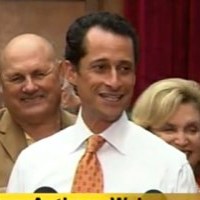
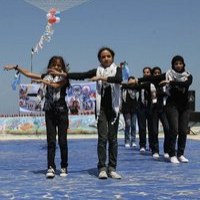
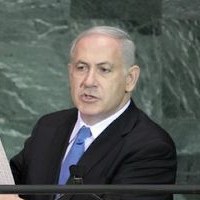




President Sleiman Addresses the General Debate of the 66th Session of the General Assembly | Middle. http://t.co/kYIuZXW0
President Sleiman Addresses the General Debate of the 66th Session of the General Assembly | Middle. http://t.co/kYIuZXW0
https://www.crethiplethi.com/president-sleiman-addresses-the-general-debate-of-the-66th-session-of-the-general-assembly/lebanon/2011/